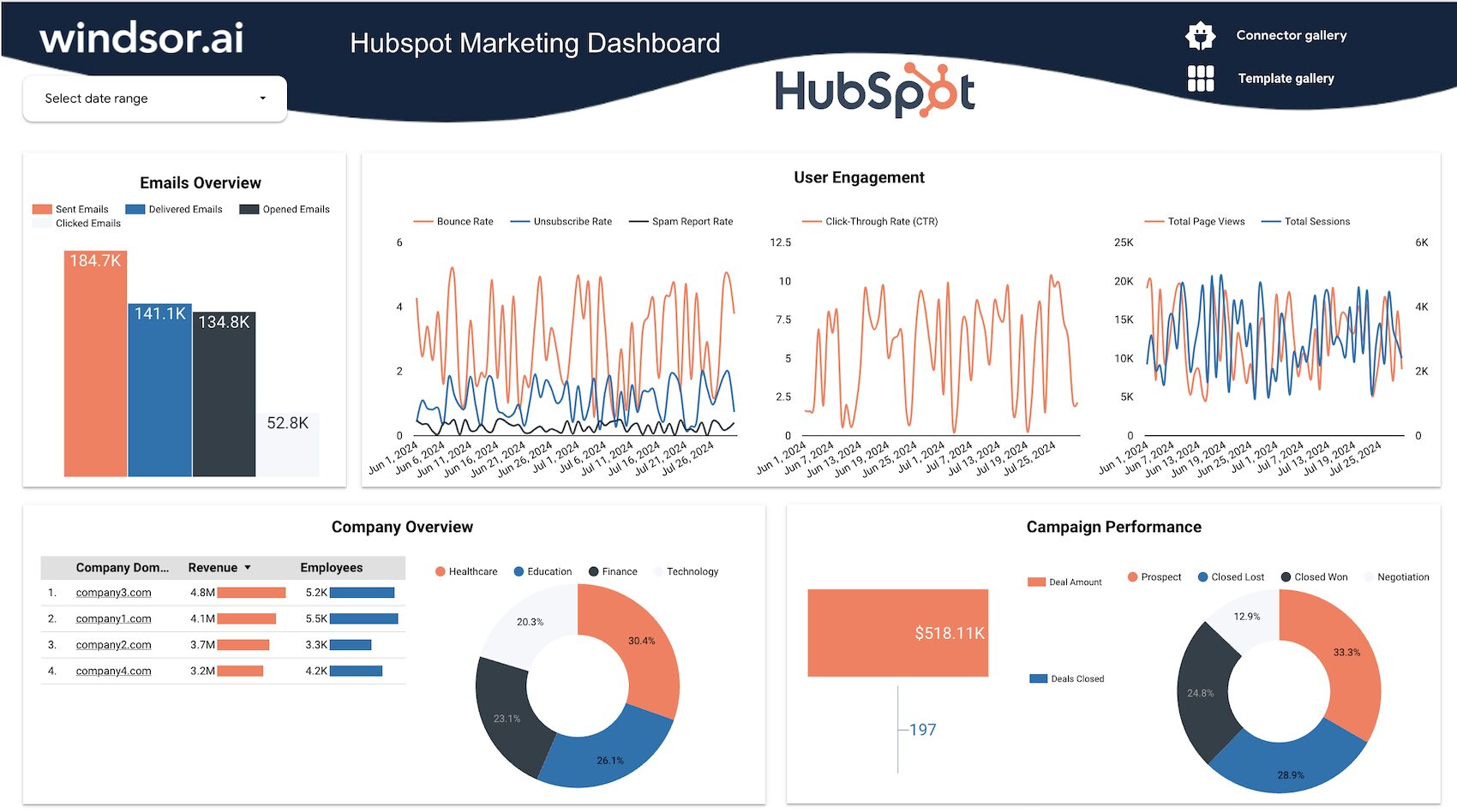HubSpot Marketing Hub: Complete Buyer's Guide
Comprehensive marketing automation platform
HubSpot Marketing Hub is a comprehensive marketing automation platform that unifies customer data across marketing touchpoints while leveraging AI-driven automation for lead nurturing and campaign optimization. The platform positions itself as the integrated solution for ecommerce businesses struggling with disconnected workflows between marketing and sales tools, inefficient personalization beyond basic segmentation, and ROI measurement gaps that prevent proper campaign attribution[41][51][53][54].
Market Position & Maturity
Market Standing
HubSpot operates as an established market leader in the marketing automation space, competing across three distinct market segments with different value propositions and competitive dynamics.
Company Maturity
The company's market maturity is evidenced by its ability to serve enterprise customers like Casio while maintaining mid-market accessibility for companies like Brauer[47][53].
Strategic Partnerships
Strategic partnerships and ecosystem development demonstrate market maturity through integrations like the HeyGen partnership for video content generation and Shopify Commerce Hub integration[40][52].
Longevity Assessment
Long-term viability is supported by continued platform development, including the 2025 Breeze AI platform launch[40].
Proof of Capabilities
Customer Evidence
Enterprise Customer Validation: Casio's implementation provides comprehensive proof of HubSpot's enterprise capabilities, achieving 71% more contacts and 27% customer growth year-over-year through predictive lead scoring and automated workflows[47].
Quantified Outcomes
Quantified Performance Metrics: The platform demonstrates measurable ROI through customer implementations. Casio's 27% customer growth represents quantifiable return on marketing investment[47], while IN-18's reduced customer acquisition costs through automated billing demonstrate operational efficiency gains[52].
Case Study Analysis
Implementation Success Patterns: Customer evidence reveals consistent outcomes across different business sizes and industries. SMBs typically require 4-8 weeks for core setup including forms and email workflows, while enterprise deployments extend to 3-6 months for full integration, as evidenced by Casio's implementation timeline[45][47].
Market Validation
Market validation comes through customer adoption patterns across different business sizes. Enterprise implementations like Casio demonstrate substantial growth metrics with 27% customer growth year-over-year[47], while mid-market success stories include Brauer's 325% database growth[53].
Competitive Wins
Market Displacement Evidence: Customers choose HubSpot specifically to replace fragmented marketing and sales tools seeking operational unification[44][51].
Reference Customers
Reference Customer Diversity: Success stories span enterprise (Casio), mid-market (Brauer), and B2B ecommerce (IN-18) segments, indicating broad market applicability rather than niche positioning[47][52][53].
AI Technology
HubSpot's AI capabilities center on three primary technological foundations: content generation, predictive analytics, and automated workflow optimization.
Architecture
The Breeze Intelligence platform represents HubSpot's most significant technical advancement, providing unified customer data capabilities that aggregate information across marketing touchpoints[40].
Primary Competitors
Enterprise marketing suites like Adobe Marketo and specialized email platforms like Klaviyo.
Competitive Advantages
HubSpot's competitive strengths center on unified CRM-marketing integration and comprehensive automation workflows. The Breeze Intelligence platform provides data unification capabilities that specialized tools cannot match[40].
Market Positioning
HubSpot positions itself as the integrated solution for businesses requiring comprehensive marketing automation rather than specialized point solutions.
Win/Loss Scenarios
Businesses prioritizing unified customer data and comprehensive lead nurturing favor HubSpot, while those needing specialized ecommerce features or budget-friendly solutions may find better fits elsewhere.
Key Features

Pros & Cons
Use Cases
Integrations
Pricing
Featured In Articles
Comprehensive analysis of Automation for Ecommerce for Ecommerce businesses and online retailers. Expert evaluation of features, pricing, and implementation.
How We Researched This Guide
About This Guide: This comprehensive analysis is based on extensive competitive intelligence and real-world implementation data from leading AI vendors. StayModern updates this guide quarterly to reflect market developments and vendor performance changes.
58+ verified sources per analysis including official documentation, customer reviews, analyst reports, and industry publications.
- • Vendor documentation & whitepapers
- • Customer testimonials & case studies
- • Third-party analyst assessments
- • Industry benchmarking reports
Standardized assessment framework across 8 key dimensions for objective comparison.
- • Technology capabilities & architecture
- • Market position & customer evidence
- • Implementation experience & support
- • Pricing value & competitive position
Research is refreshed every 90 days to capture market changes and new vendor capabilities.
- • New product releases & features
- • Market positioning changes
- • Customer feedback integration
- • Competitive landscape shifts
Every claim is source-linked with direct citations to original materials for verification.
- • Clickable citation links
- • Original source attribution
- • Date stamps for currency
- • Quality score validation
Analysis follows systematic research protocols with consistent evaluation frameworks.
- • Standardized assessment criteria
- • Multi-source verification process
- • Consistent evaluation methodology
- • Quality assurance protocols
Buyer-focused analysis with transparent methodology and factual accuracy commitment.
- • Objective comparative analysis
- • Transparent research methodology
- • Factual accuracy commitment
- • Continuous quality improvement
Quality Commitment: If you find any inaccuracies in our analysis on this page, please contact us at research@staymodern.ai. We're committed to maintaining the highest standards of research integrity and will investigate and correct any issues promptly.